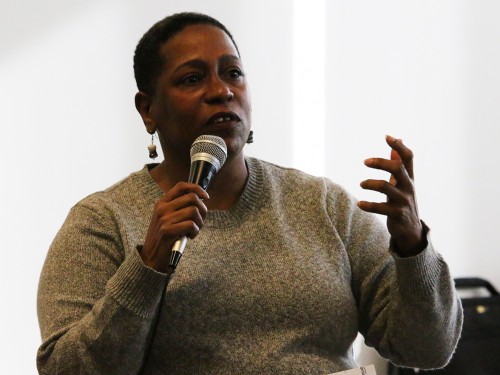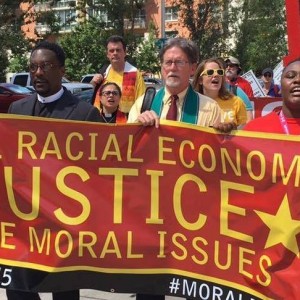Jussie Smollett, Believing the Victim, and Deep National Wounds

Jussie Smollett, the 36-
It is difficult to adequately articulate the pain and shock I felt as a Black queer lesbian, reading Smollett’s initial allegations of the attack. Early morning hours on one of the coldest days of this winter season, two men wearing ski masks reportedly approached him near a Subway restaurant in Streeterville, asked if he was “that faggot Empire nigger”, then beat him, poured bleach on him and tied a rope around his neck. What?! I know this area. I live in Chicago, one of the most progressive cities in the country, but because I, like many other Black LGBTQ persons, must be vigilant about my safety, my first impulse was to believe Smollett.
It was all the easier to believe him because I’m very aware of the rise in hate crimes in America. Last year hate crimes in America rose 17 percent, the third consecutive year that such crimes increased, according to data released by the FBI in 2018. The most recent study from the National Coalition of Anti-Violence Programs (NCAVP) reported the deadliest year on record for the LGBTQ community. According to the Anti-Violence Project, the severity of hate violence against LGBTQ people is increasing. 46 percent of LGBTQ survivors of hate violence sustained an injury in 2017 compared to 31 percent in 2016, 42 percent reported seeking medical attention in 2017 compared to 23 percent in 2016, and 27 percent reported that weapons were used in 2017 compared to 13 percent in 2016.
And this data does not cover the specific trauma Black communities have experienced historically with lynchings and mob violence. There was a rope around his neck!
The data also does not take into account the conversations being had about believing victims of assault. "Believe the victim. Period." While there are exceptions, we know most of these victims do offer true accounts. On that premise, in the absence of verifiable proof, it makes sense to err on the side of the alleged victim. Statistically then, the sympathy for Smollett makes sense.
But "Believe the victim. Period" is not the type of moral reasoning that will move our communities and nation to peaceful and just coexistence. It is devoid of honesty and ultimately vacuous of true love, for the victim and the one whom we hope one day might be reformed and, if possible, brought back into
The data on hate crimes, combined with the history of oppression for black and brown people in America, also provides a window into why many Black and LGBTQ persons refuse to accept the findings by the Chicago Police: That Smollett staged a fake attack against himself and the two men who were seen on camera were actually paid by Smollett to help orchestrate the hoax—two black men, not white MAGA supporters as described by the initial stories floating around.
Black people are sensitive to the inequities in our state and national judicial processes. This unwillingness to suspend judgment continues even after the findings of this quickly investigated case. After all, the officers of the Chicago Police Department are hardly paragons of virtue. It is a police force with a known history of corrupt officers and leadership. Whatever report this department presents to the public will be held under intense scrutiny by Black citizens of Chicago because of a history of excessive and deadly force against this community.
All this in mind, there is another most particularly troubling response by more than a few persons who support Jussie Smollett. They declare that “even if he did lie” it doesn’t matter. They believe, even if it is true that he gave a false report, Smollett should be allowed impunity. After all, “Trump is president and he is a known liar!”
This appeal to hypocrisy is being batted around rather frequently is this era of “alternative facts”. But it is bigger than Smollett and bigger than any specific crime. It is not a simple matter of pointing to other acts of hypocrisy in order to defend the actions of another or one’s self. It is not simply tribalism, one side against another. This is about a national wound that has never healed, committed by an ideology of superiority in all its many facets: white supremacy, class supremacy, gender supremacy, and so forth. It is about the centuries of pain endured, about elusive civil rights for all, the dramatic rise of supremacy and realizing that we continue reliving our history of racism and supremacy with liberation still so far from our reach.
We can debate Smollett’s actions ad
On a perhaps idealistic note, I am also hoping we can have a conversation about our differing opinions and the various stances we take without those conversations being reduced to ad hominem attacks and social media
[This essay was originally published in Newsweek Magazine on February 25, 2019]

Rev. Dr. Pamela Lightsey
Throughout her vocational life, Dr. Lightsey has been a leading social justice activist, working with local, national, and international organizations focusing primarily on the causes of peacemaking, racial justice, and LGBTQ rights.
Continue Reading
